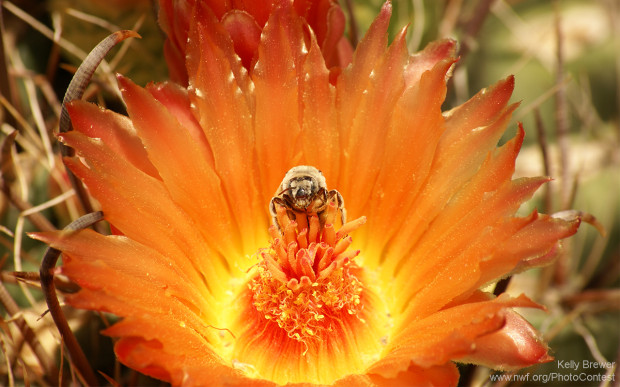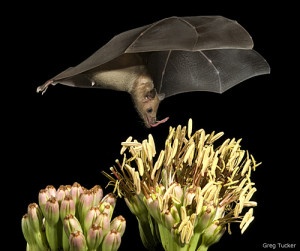We have much more to do and your continued support is needed now more than ever.
If It Weren’t for Pollinators…
Birds, bees, bats, butterflies, beetles – these small pollinating animals are responsible for providing us with food, fibers, medicines, and more. Pollination occurs when pollen is moved from one flower to another of the same species, allowing fertilization to occur. With the help of pollinators, our ecosystems thrive and continue to produce the valuable goods we depend on.

Chocolate
The cacao flower, though only about the size of a nickel, is responsible for the world’s supply of chocolate. The cacao flower is so complex in design and behavior, though, that it requires a unique insect to pollinate it – midges. Midges are tiny flies that dwell in the shady, damp rain forest and are the only insect that can make its way through the complicated cacao flower and pollinate it.
Shea Butter
Honey bees pollinate the flowers of the karite tree, which produce the nut used to make shea butter. Shea butter is commonly used in the cosmetics industry for skin and hair products as lotion or salve. It serves as a deep moisturizer and is a wonderful way to naturally hydrate dry skin.
Coca-Cola
Whether or not you’re actually grateful for cola, pollinators are responsible for the original recipe. In the 1800s, a pharmacist in Georgia took extracts of the kola nut to invent the first cola soft drink. The kola flowers have a foul odor that attract flies for pollination.
Mustard
If it weren’t for honey bees, we would be forced to put ketchup on our Chicago-style hot dogs. The mustard plant produces a seed that is used as a spice. The yellow condiment is created by grinding the seed and mixing it with water, vinegar, lemon juice, and other liquids.
Tequila

The long list continues: strawberries, blueberries, cashews and so many more. Let it be a reminder of the value of the pollinators in our day to day life and that we can do things in our own gardens to help them.
Which pollinator are you grateful for today?
Help wildlife with your garden
![]() Become a Wildlife Gardener with National Wildlife Federation. It’s free and you’ll get great wildlife gardening tips and learn how to certify your garden as an official habitat.
Become a Wildlife Gardener with National Wildlife Federation. It’s free and you’ll get great wildlife gardening tips and learn how to certify your garden as an official habitat.





















